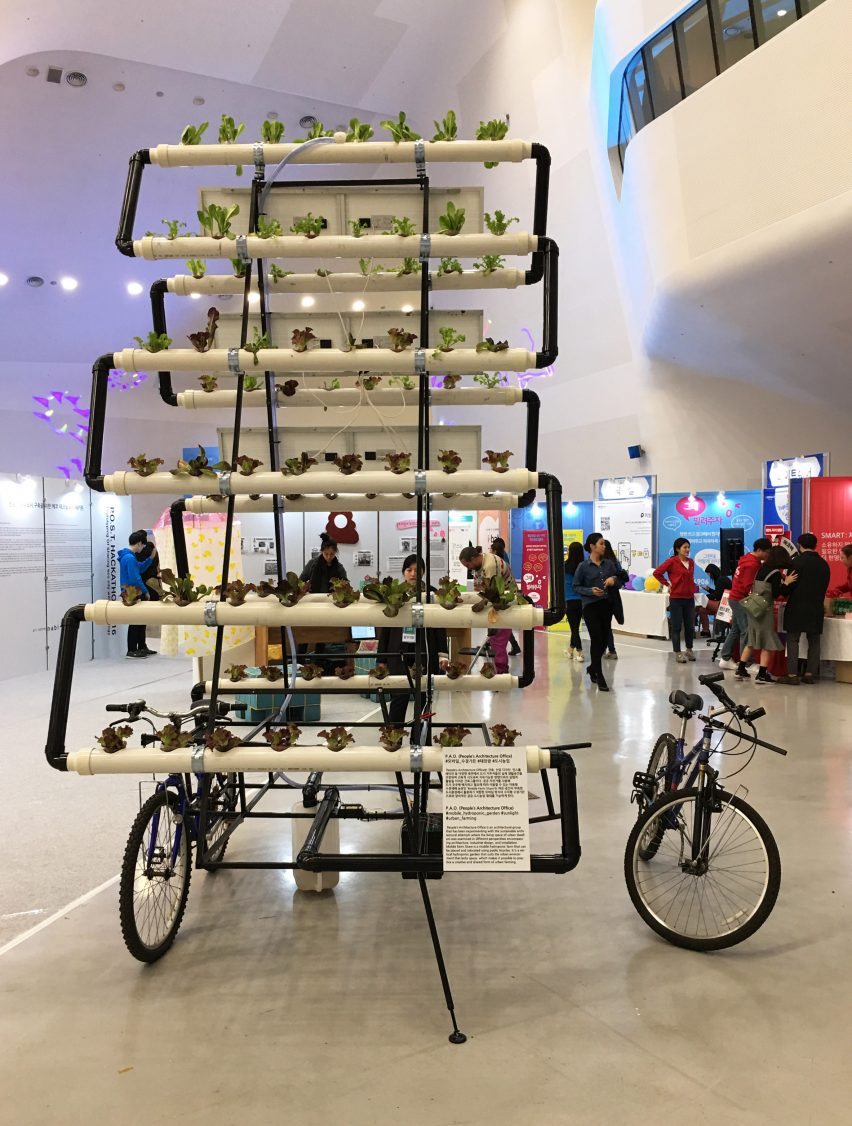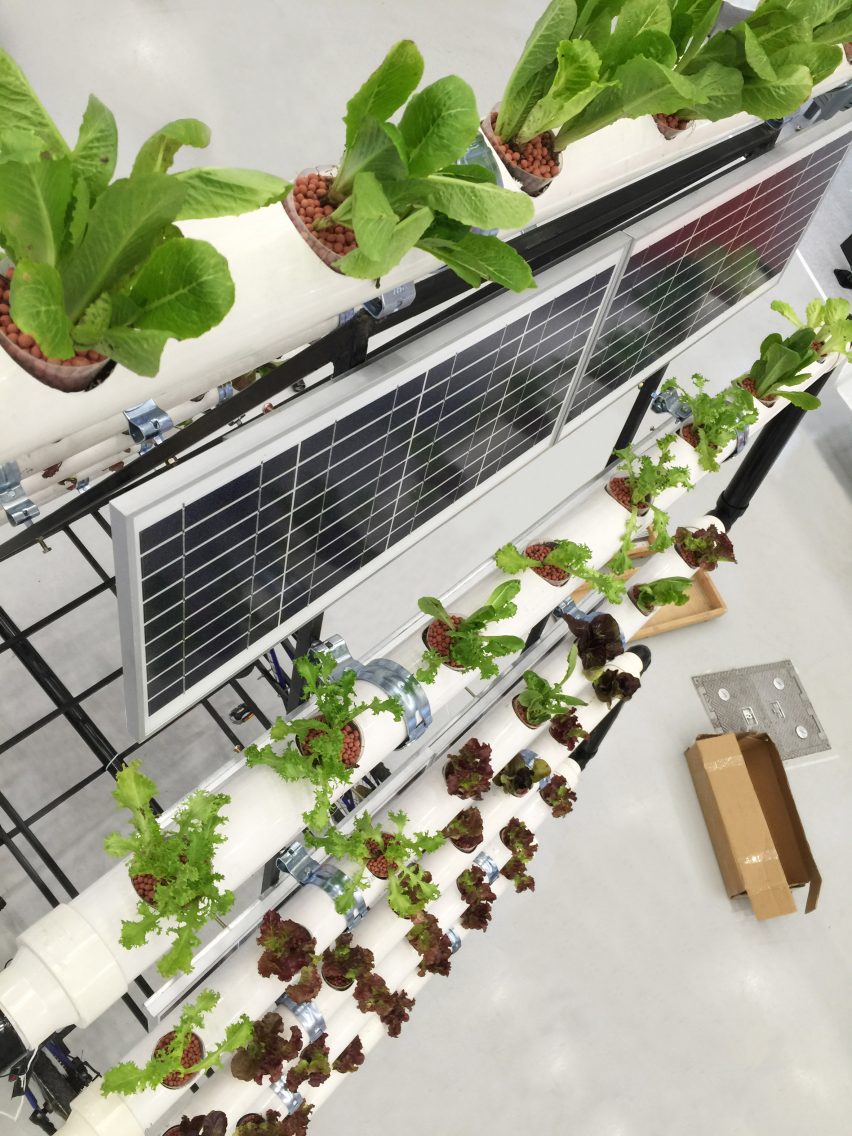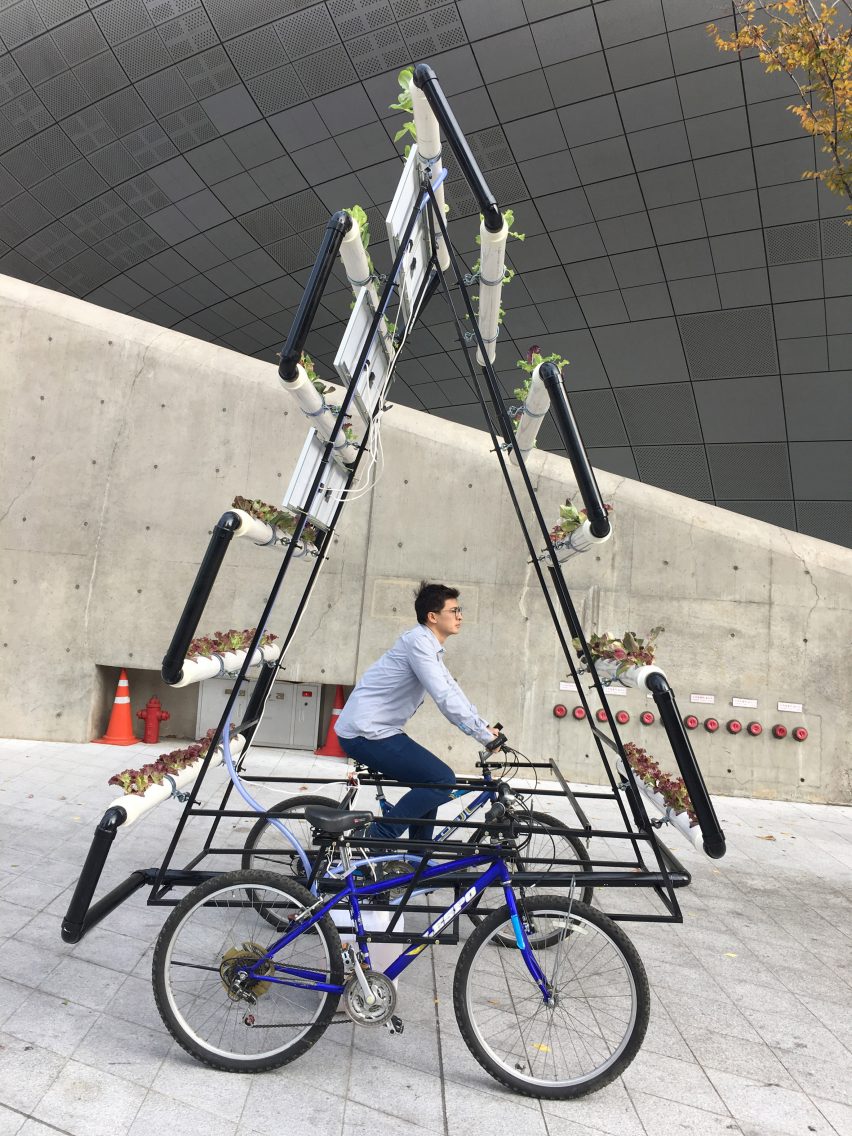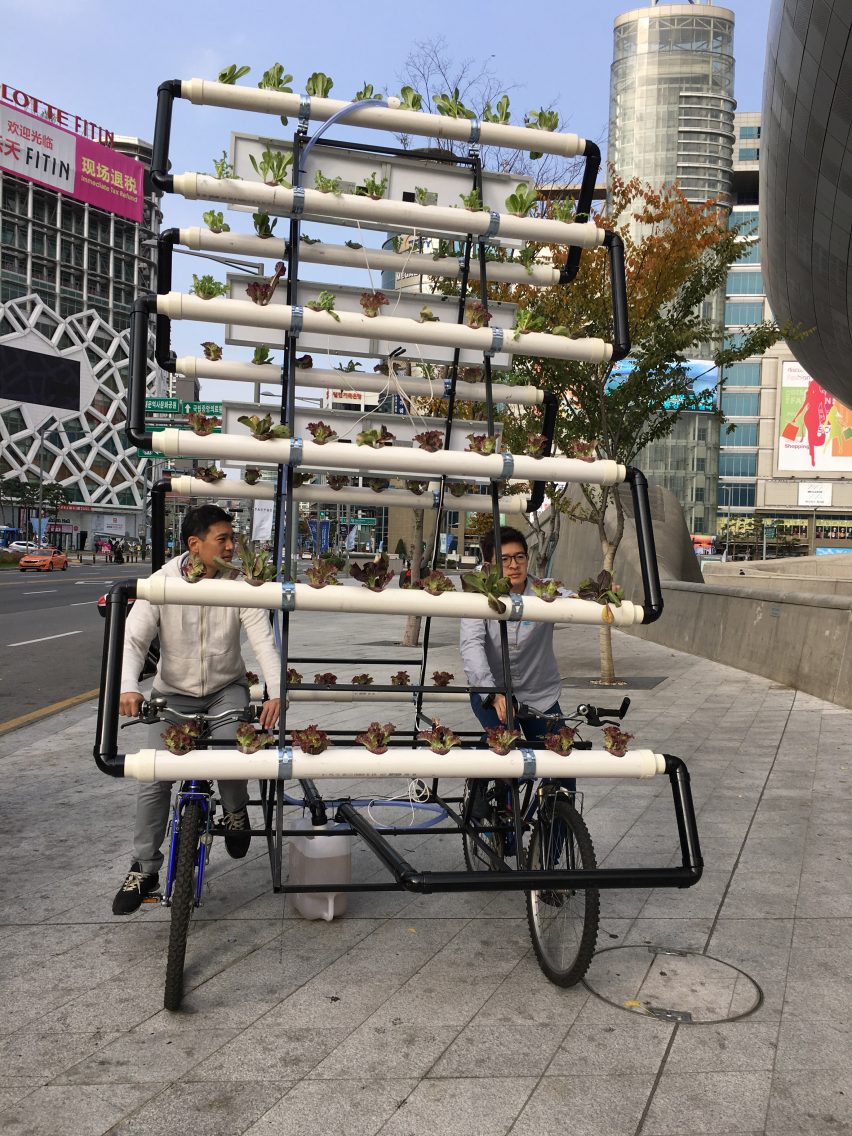PIDO's Bike Share Farm is a community garden that can be pedalled from place to place
Beijing architecture firm People's Industrial Design Office has designed a mobile farm that lets the community share responsibility for crops' wellbeing.

Bike Share Farm – which was created and built by People's Industrial Design Office (PIDO) during a 72-hour hackathon in Seoul, South Korea – addresses the lack of space many major cities suffer from, particularly when it comes to room for growing produce.
The hydroponic farm consists of a triangular steel framework supported by a pair of bikes. Pipes run across the metal base, with holes for pot plants to slot into. A set of solar panels are fastened onto the structure to power a pump that runs water through the entire system.

The frame allows for bikes to be easily exchanged, so that a new cyclist can take responsibility for the farm at each stop. The system is designed to encourage a whole community to take part in farming, and offer more people the chance to get involved.
"Urban gardens are now common in many cities but few have access to them," PIDO co-founder James Shen told Dezeen. "The Bike Share Farm marries the bike share model with urban farming. A vertical and mobile farm addresses the land constraints found in dense cities like Seoul and Beijing."

According to Shen, the structure is light enough to be lifted by two people and is easy to control and steer.
"We imagine people would ride to a Bike Share Farm location, hook on their bikes and take it to a convenient location," he added. "This would allow large numbers of Bike Share Farms to spread throughout the city."
The studio is currently working on demonstrating the design with larger numbers of vehicles.

As cities with limited space continue to build upwards, new approaches to farming are being created by designers keen to introduce greenery. These include a vertical farm that would produce food amid Shanghai's skyscrapers and a floating "food forest" that would occupy a barge on New York's waterways.